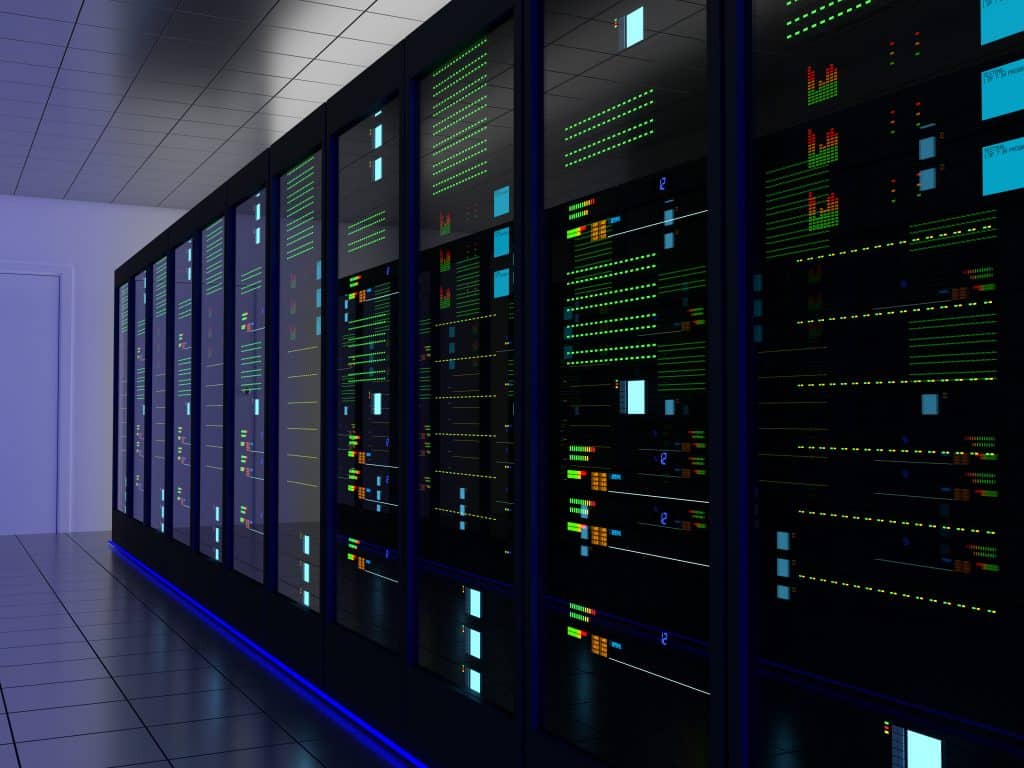
Data center colocation is a vital practice for businesses and organizations aiming to safeguard their critical data. As technology becomes increasingly integral to operations and data volumes surge, the need for secure and reliable storage solutions is more important than ever.
What is Data Center Colocation?
Data center colocation involves housing critical IT infrastructure and equipment in a third-party data center. Instead of managing their own on-premises data centers, businesses can colocate their servers, storage devices, and networking equipment in a secure, reliable facility.
Colocation offers several benefits, starting with enhanced security measures. Colocation facilities are equipped with advanced security systems, including surveillance cameras, access control systems, and biometric authentication, ensuring that only authorized personnel can access the data center.
Additionally, data center colocation provides increased reliability and uptime. Colocation providers ensure uninterrupted operations with redundant power supplies, backup generators, and multiple network connections. This is crucial for businesses that cannot afford downtime, as it can lead to significant financial losses and reputational damage.
In practice, when a business chooses to colocate its IT infrastructure, it rents space within a colocation facility. The business retains full ownership and control over its servers and equipment, while the colocation provider manages the facility’s physical infrastructure, including cooling, power, and network connectivity.
Overall, data center colocation offers a cost-effective and efficient solution for protecting critical data. By leveraging the expertise and resources of a trusted colocation provider, businesses can focus on their core competencies while benefiting from a secure and reliable data center environment.
The Importance of Physical Security
Physical security is paramount in protecting critical data, and data center colocation facilities implement stringent measures to ensure this. Let’s explore the various physical security measures used in these facilities.
Access control systems and protocols are essential for ensuring that only authorized personnel can enter the facility. Advanced technologies like biometric scanners, key cards, and PIN codes are employed to verify credentials and minimize the risk of unauthorized access.
Surveillance and monitoring systems are another critical aspect of physical security. High-resolution cameras are strategically placed throughout the facility to monitor all areas continuously. These cameras provide real-time monitoring and recording, enabling prompt detection and investigation of any suspicious activities.
Moreover, data centers employ round-the-clock security personnel to monitor the premises. These trained professionals are adept at identifying potential security threats and taking immediate action to mitigate risks, further enhancing the overall security of the facility.
By implementing robust physical security measures, data center service providers like IP Pathways ensure the protection of critical data. These measures not only safeguard against physical breaches but also act as a deterrent, preventing unauthorized access and potential data breaches. Businesses can have peace of mind knowing their sensitive information is secure.
Network Connectivity and Redundancy
One key benefit of data center colocation is the redundancy measures in place to ensure uninterrupted data access. Redundancy involves duplicating critical components to eliminate single points of failure. In network connectivity, this means having multiple network connections and carriers. Redundant network connections allow for automatic rerouting through another connection in case of issues, ensuring uninterrupted data access.
Network monitoring and management are also integral components of data center colocation. Advanced monitoring systems keep a close eye on network performance and quickly detect potential issues. This proactive approach allows for immediate troubleshooting and resolution, minimizing any impact on data access and connectivity.
Disaster Recovery and Business Continuity
Protecting critical data is paramount for businesses in today’s digital age. Data center colocation plays a vital role in disaster recovery and business continuity by providing robust strategies to safeguard valuable information.
Data backup and replication strategies are essential components of disaster recovery plans. By storing data in a colocation facility, businesses ensure that their critical information is regularly backed up and replicated to multiple off-site locations. This redundancy minimizes data loss risk and provides a reliable backup system for unforeseen events.
Disaster recovery (DR) testing and planning are crucial to ensure that businesses are well-prepared for disasters. Colocation providers offer robust testing environments where businesses can simulate various disaster scenarios and evaluate the effectiveness of their recovery plans. Regular testing helps identify vulnerabilities and make necessary improvements to minimize downtime and data loss.
Colocation facilities provide high availability and reliability with redundant power and cooling systems, advanced security measures, and skilled staff available 24/7. In a disaster, businesses can rely on the data center service provider’s infrastructure and expertise to maintain critical operations, minimizing impact and ensuring continuity.
With the increasing frequency and severity of cyberattacks, natural disasters, and other unforeseen events, data center colocation is an essential component of a comprehensive disaster recovery and business continuity strategy. By leveraging the expertise and resources of a colocation provider, businesses can protect their critical data, minimize downtime, and ensure uninterrupted operations during challenging times.
IP Pathways
Cloud Services | Managed Services | IT Solutions | IT Consulting
At IP Pathways, we understand how difficult it is to scale on your own. But what if you could move past the issues currently holding you back? Good news–you can! We identify opportunities in your organization to leverage technology to spark greater growth starting now. Our tailored solutions turn IT into a strategic investment rather than a cost center. With the right tech, you can move faster, innovate, and gain a competitive edge.
Our engineers have deep technical expertise and experience. They architect, implement, monitor, support, and manage custom technology solutions for organizations using only the highest-quality and best-in-class systems. As a result, projects are completed on time and within budget, ready to deliver the results you need to fuel your organization forward. Contact Us

